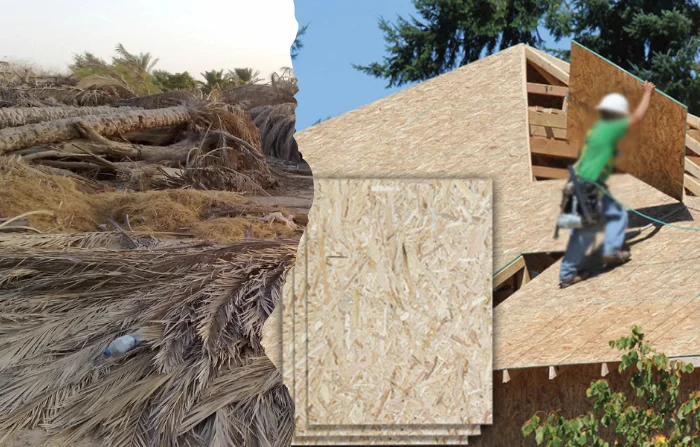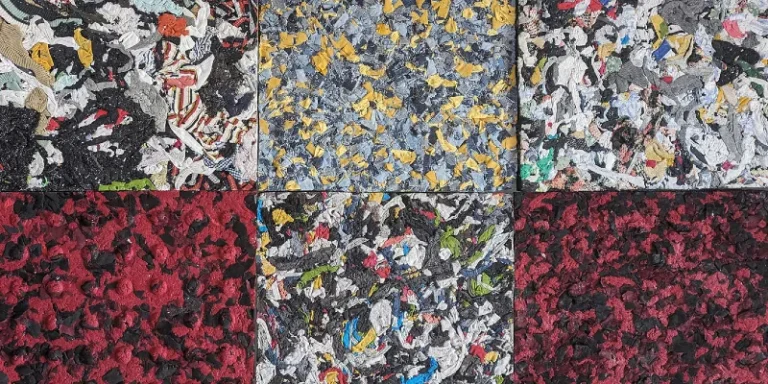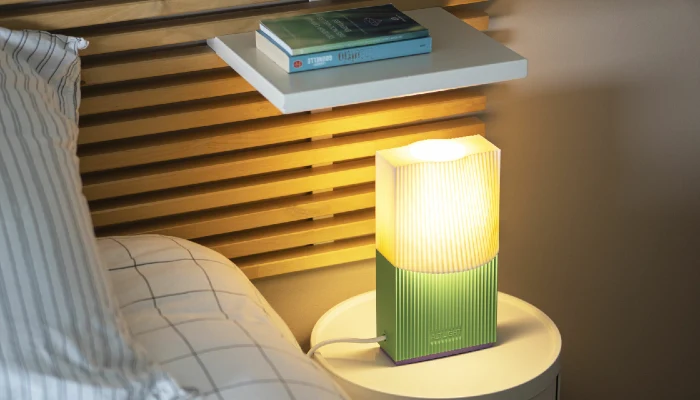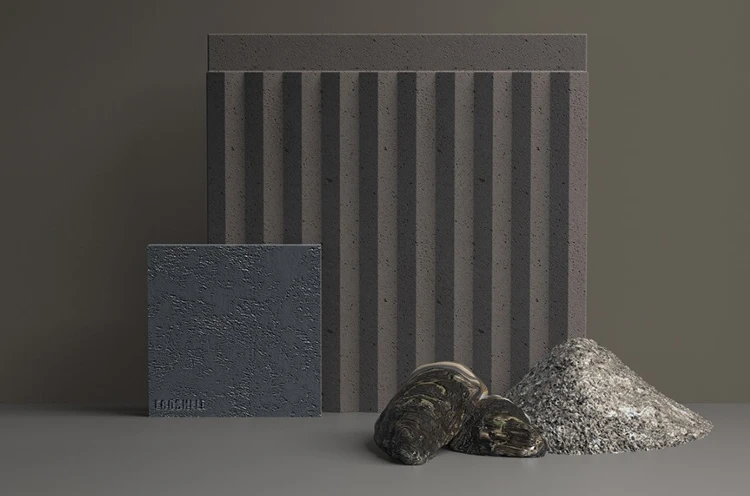The construction industry, notorious for its contribution to global heating and carbon emissions, is undergoing a transformation thanks to an innovative solution originating in the United Arab Emirates. Abu Dhabi-based company Desert Board has found a way to reduce the carbon footprint of construction by utilizing waste from date palm trees, potentially offering a green alternative to traditional plywood.
The Construction Industry Is A Leading Global Producer of Carbon Emissions
Construction activities, along with the manufacturing and transportation of materials, collectively account for a substantial 11% of all global carbon emissions, according to data from the World Green Building Council. This alarming statistic underscores the urgent need for sustainable alternatives within the industry.
In the UAE alone, an estimated 40 million date palms thrive, making it the world’s fifth-largest producer of dates. However, when date palm fronds are pruned or cut down, they pose a significant environmental challenge. These discarded fronds take decades to decompose, occupying vast swaths of land and emitting methane, a potent greenhouse gas, into the atmosphere. Alternatively, they’re often incinerated, releasing carbon dioxide (CO2) into the air.
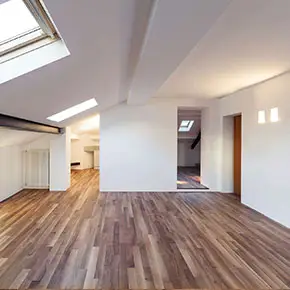
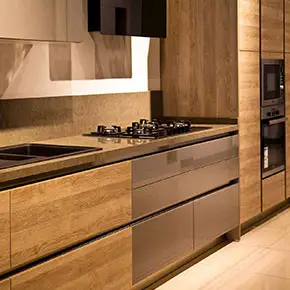
From Waste to Resource: Palm Strand Board (PSB)
Enter Desert Board, which has devised an innovative solution to address this environmental dilemma. The company repurposes discarded palm tree waste from pruning to create a construction material known as Palm Strand Board (PSB). This versatile material can effectively replace traditional plywood in various applications, including furniture, flooring, walls, doors, and shelves.
Kamal Farah, director of Desert Board, explains, “This is taking nature-based waste and turning it into a product with value and use.”
PSB is not only recyclable, but also boasts exceptional durability. It’s fire-resistant, termite-proof, and moisture-resistant, setting it apart from many conventional plywood options.
PSB also contains no formaldehyde, a known carcinogen present in some plywood products.

A Growing Solution with Environmental Benefits
Desert Board introduced its first PSB product two years ago and has since been distributing it within the UAE and to countries including Saudi Arabia, Bahrain, and India. The company’s production output is substantial, covering an area equivalent to two-and-a-half football fields daily. Furthermore, since PSB is derived from palm trees that absorb carbon dioxide during their growth, every ton of PSB used is equivalent to capturing 400 kilograms of carbon, providing a tangible environmental benefit.
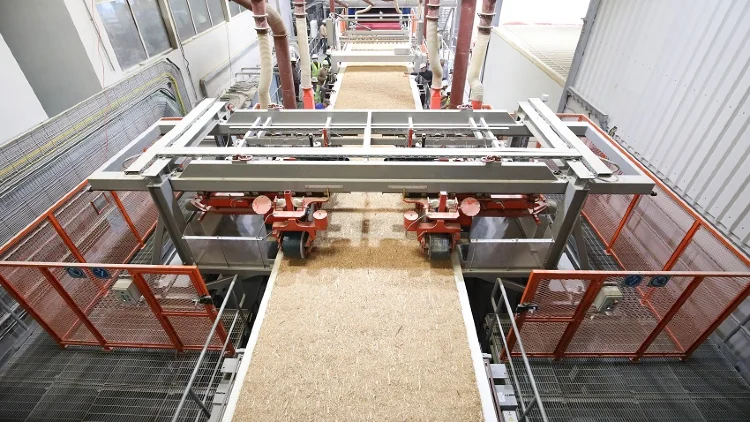
Pioneering Sustainability and Economic Diversification
Desert Board stands as the world’s sole company utilizing palm waste in this innovative manner. By reducing the UAE’s reliance on imported materials, Desert Board aligns with Abu Dhabi’s broader industrial strategy aimed at diversifying its economy away from fossil fuels.
Abu Dhabi, home to the world’s sixth-largest oil reserves, has long been dependent on fossil fuels. However, the emirate is actively seeking to diversify its economic landscape. In 2022, Abu Dhabi unveiled an ambitious industrial strategy with goals of doubling the size of its manufacturing sector by 2031, generating over 13,000 jobs, and increasing non-oil exports by nearly 150%. Sustainability and local supply chains are integral to this strategy.
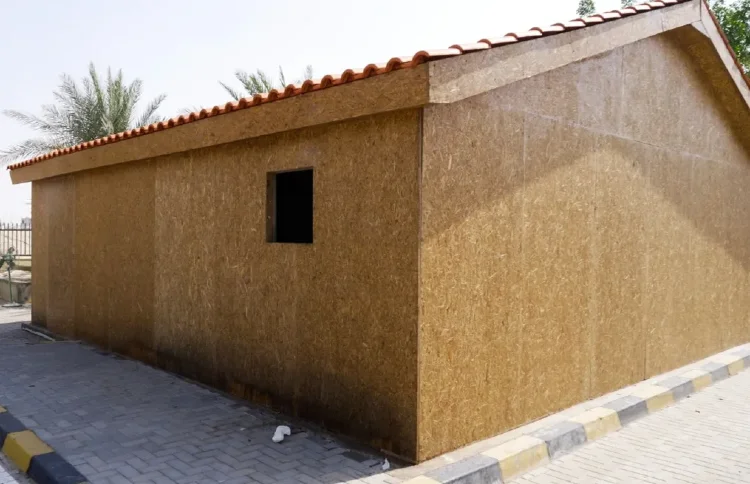
What Could Happen If The Construction Industry Adopts Palm Strand Board?
While Desert Board’s operations primarily benefit the United Arab Emirates and neighboring countries, the implications of PSB extend far beyond these regions. As climate change continues to threaten our planet, finding sustainable solutions for the construction industry, a major contributor to carbon emissions, is of global importance.
The PSB’s ability to sequester carbon through its use of date palm waste showcases a circular economy approach that can be replicated worldwide. It provides a tangible example of how innovative thinking can transform what was once considered waste into a valuable resource. By utilizing locally abundant materials in construction, other nations can reduce their carbon footprint and decrease dependence on imported resources.
Supporting Sustainable Practices
The emergence of PSB aligns with a broader global trend towards sustainable building materials. Governments, industries, and consumers are increasingly prioritizing products and practices that are eco-friendly and reduce greenhouse gas emissions. PSB serves as a testament to the potential for nature-based materials to replace conventional options, fostering a more sustainable and environmentally responsible construction industry.
Whether PSB is adopted throughout the industry or not, the present, albeit mostly regional, success of PSB has already proven that there’s a need for continued research and development within the construction sector.
PSB can’t solve all the carbon emissions problems from an entire global industry, but it has opened some people’s minds to exploring unconventional materials and methods.
The Road Ahead for Palm Waste Board
While the palm waste board represents a significant step toward eco-friendly construction materials, challenges remain to make it a mainstream choice.
Paul Hampton, head of the School of Architecture and Built Environment at the University of Wolverhampton, highlights the need for further exploration of scalability, application, and compatibility with existing products. Entry into the European market may necessitate local certifications for fire safety and durability, especially in varying climate conditions.
Despite these challenges, Palm Strand Board offers a promising solution to reduce the carbon footprint of construction while making use of an abundant and previously underutilized resource—the date palm tree.
As industries worldwide seek sustainable alternatives, innovations like PSB represent meaningful steps toward a greener future.







